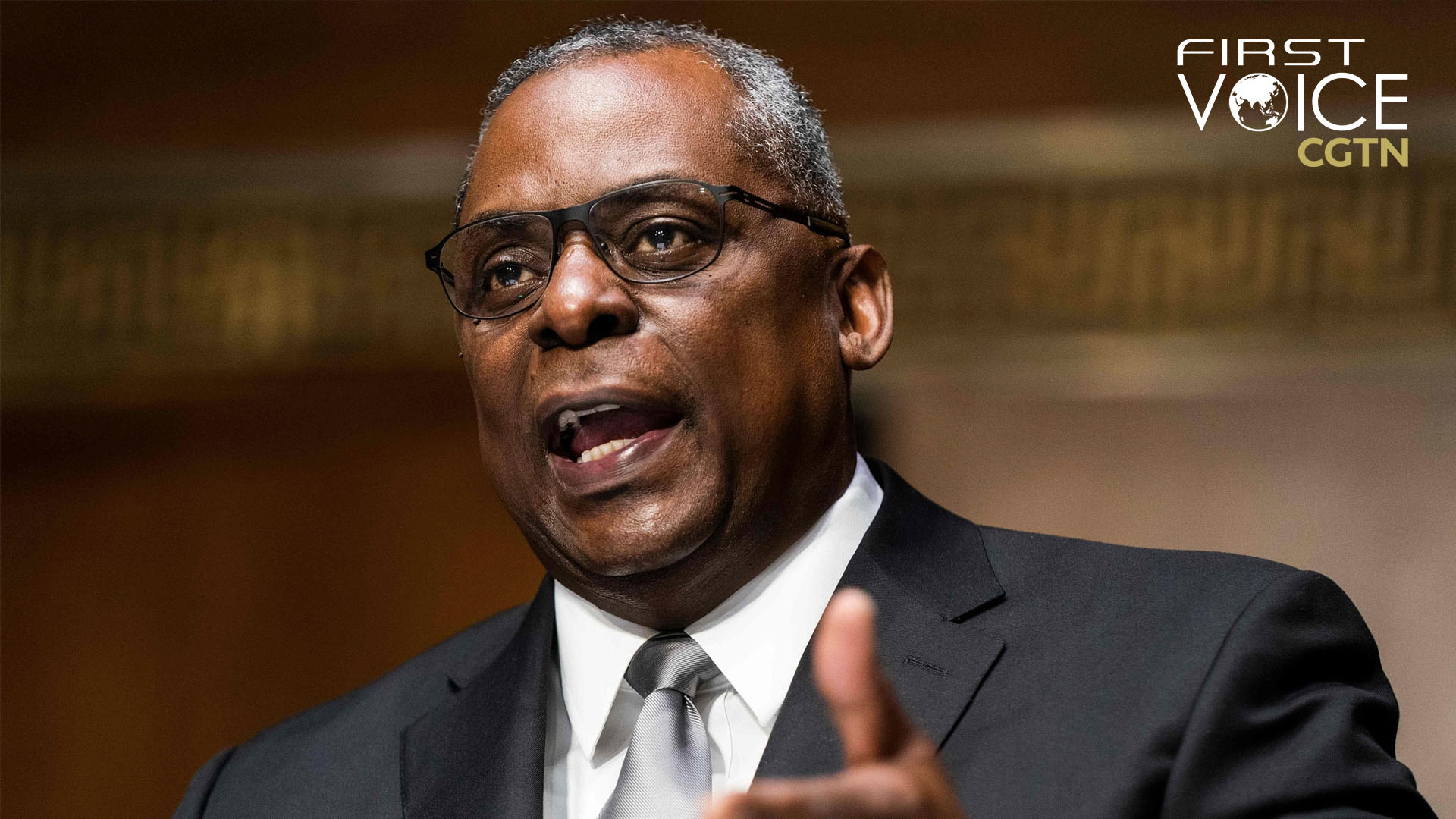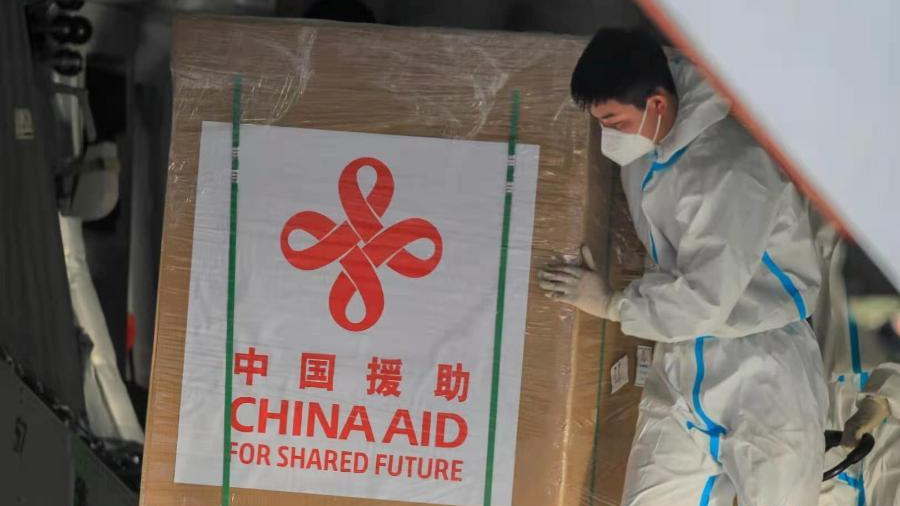
Editor's note: CGTN's First Voice provides instant commentary on breaking stories. The daily column clarifies emerging issues and better defines the news agenda, offering a Chinese perspective on the latest global events.
During a speech at a Singapore think tank on Tuesday, U.S. Defense Secretary Lloyd Austin made three claims about the South China Sea that don't hold much water – and are unlikely to plug the draining confidence in the U.S. commitment to the region.
Here is a reality check on claims Austin, the first high-ranking official from the Biden administration to visit the region, made during his speech in Singapore.
Beating the drums of war
In his speech, Austin painted China as a warmonger and a troublemaker, saying Beijing was not willing to negotiate the South China Seas issue peacefully.
"Unfortunately, Beijing's unwillingness to resolve disputes peacefully and respect the rule of law isn't just occurring on the water," Austin added, citing the Indian border, Taiwan and Xinjiang.
It is interesting that the U.S., which is still involved in two decades-long military conflicts, accuses China of refusing to resolve conflicts peacefully.
It is the U.S., not China, that is injecting itself into a maritime dispute half a continent away. It is the U.S. that is sending military warships deep into Chinese territory, and it is the U.S. that is trying to discourage negotiations and encourage conflict in the region.
A prime example of this is the Philippines. Washington is pushing Manila to make a defense pact and take a tough line on its maritime border with China.
However, Philippine President Rodrigo Duterte has ignored this pressure and succeeded in fruitful negotiations with China about resolving the maritime conflict.
The two countries have moved beyond narrow sea border disputes into broader issues like strengthening trade and diplomatic ties.
Despite the unresolved maritime issue, Duterte refers to China as a friend and a benefactor.
China has been the biggest supplier of COVID-19 vaccines to the island nation. It is peacefully negotiating with all countries that have maritime disputes in the South China Sea. The only nation that wants military conflict over this issue is apparently the U.S.

A staff member unloads vaccines donated by China at a Philippine Air Force base in Manila, the Philippines, February 28, 2021. /Xinhua
A staff member unloads vaccines donated by China at a Philippine Air Force base in Manila, the Philippines, February 28, 2021. /Xinhua
South China Sea straw man
Austin again repeated the well-worn U.S. canard that China's South Sea claims are baseless and threaten international shipping routes.
Austin said, "We don't believe that any one country should be able to dictate the rules or worse yet, throw them over the transom, and in this regard, I'll emphasize our commitment to freedom of the seas."
China's sovereignty, rights and interests in the South China Sea have been formed in the course of a long history and have an abundant historical and legal basis. They have been upheld by successive Chinese governments all along and brook no challenge by anyone.
China has never threatened freedom of navigation in the South China Sea and promises it won't do so. In fact, one of China's primary priorities, the Belt and Road Initiative, revolves around building trade routes and increasing regional connectivity.
China has long cultivated closer trade and diplomatic ties with Southeast Asia, even as U.S. attention drifted elsewhere.
The U.S. claims that China's South China Sea claims have no basis in law. But this U.S. assertion relies on the UN Convention for the Law of the Sea, which the U.S. itself refuses to sign.
Choose your friends
During Austin's speech, he denied that Washington was asking Southeast Asian nations to pick sides. "As Prime Minister Lee (Hsien Loong) has counseled, we are not asking countries in the region to choose between the United States and China," Austin said.
However, this claim is undermined by the U.S.' words and actions. Although the U.S.' official position is to remain neutral in the South China Sea dispute, it regularly takes a side.
For example, Austin called China's maritime claims "unhelpful and unfounded."
Southeast Asian nations do not want to be caught up in the rivalry between the U.S. and China. They prefer strong ties with both nations.
But the U.S. continues its efforts to isolate China and put diplomatic pressure on Beijing from all sides. As Washington turns up the flame on South China Sea territory disputes in which it has no claim, it is hard for the Association of Southeast Asian Nations (ASEAN) countries not to feel the heat.
The region still has not forgotten that the U.S. abandoned the Trans-Pacific Partnership deal that it initiated. Southeast Asian nations can't be blamed for wondering if U.S. promises for military support would be abandoned just as quickly.
The U.S. can playact that it is vitally concerned with Southeast Asia all it wants, but ASEAN nations know that in the end, China is a close neighbor with strong trade ties and will always be more focused on the region than the United States. Washington's provocations and lies like the three Austin repeated in Singapore won't change the fact that China will always care more about the South China Sea than the U.S.
(If you want to contribute and have specific expertise, please contact us at opinions@cgtn.com.)

